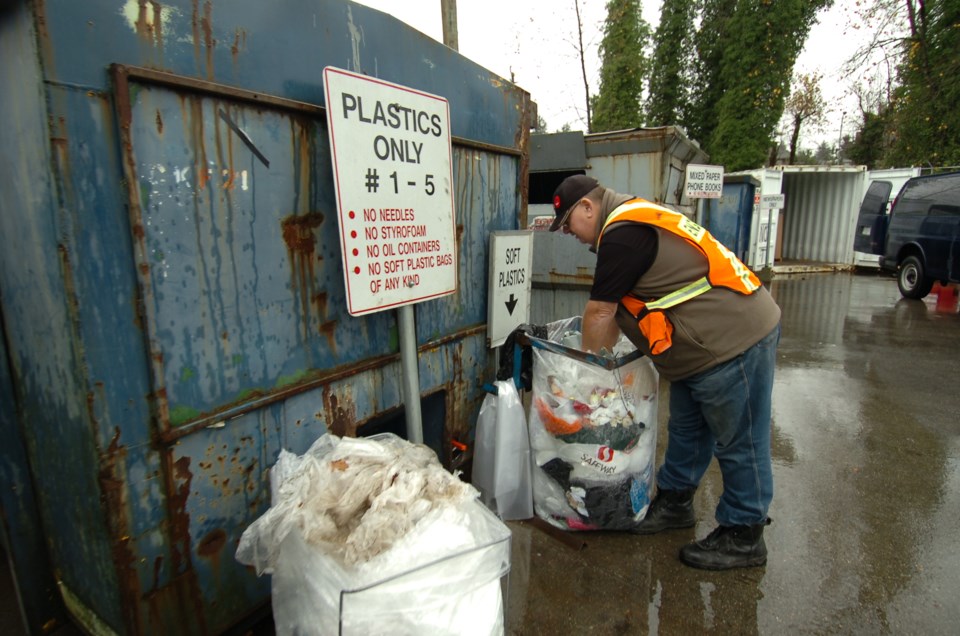A West End resident is concerned about the “black ooze” and stench at the city’s recycling depot.
Bill Zander is a big fan of the city’s recycling depot, but is concerned about waste that’s been dumped at the facility in the past few months. During a recent visit to the depot, he said there was “a pile of stinking rubbish” mixed with other recyclables that was set to be picked up later in the day.
Zander said he spoke to city officials several months ago and was told it was a temporary issue but the “stinking mess” is still being dumped at the depot. While he’s also been told the waste is from the multi-family organic recycling program, he’s seen all sorts of items in the pile.
“The fact of the matter is, it’s not organic. If you look at the pile of rubbish that was there, there was everything in it. There was food waste, a hair dryer, running shoes, plastic, you name it,” he said. “There may even have been a kitchen sink in it – if I’d have dug through it, I might have found one. There was everything in it.”
While the recycling depot staff do their best to keep the facility neat and tidy, Zander is concerned about the smell and health impacts.
“The number of times I have come in there after than mess has been dumped there, there is a black ooze all over the area where you dump the recyclables,” he told council July 10. “If you have two or three people backing in there to dump stuff, you end up driving through that goo and you get it on your shoes, and you are going to end up with it in your car. It isn’t just something you can clean up.”
Jim Lowrie, the city’s director of engineering, said the problem is a regional issue that’s affecting many Lower Mainland municipalities.
“The problem is with the largest processor in the Lower Mainland - Harvest Power is running in to issues with the capacity of pure food waste,” he said. “Because of the homogenous nature and biodegradability, it produces odors. There have been complaints at their facility.”
Harvest Power operates an organic waste composting facility in Richmond, where it takes items like foods scraps and yard waste from around the regional and turns them into mulch, soil and compost. In response to more than 2,500 complaints about the smell emanating from the facility, Metro Vancouver and the City of Richmond have taken steps to have the company remedy the situation.
According to Lowrie, the issue relates to food waste from the multi-family sector and a solution is expected soon. Until then, he said yard waste and green waste is being mixed into food waste at the recycling depot, which allows Harvest Power to process the food waste more effectively and address odor concerns.
“When they get the new processor in place, they will no longer have to mix. There’s a very limited capacity in the Lower Mainland. There are companies that are just forming that are establishing a capacity to accept the food waste products from our multifamily sector,” he said. “It’s the same issue impacting several other municipalities.”
Coun. Chuck Puchmayr said the city is dealing with the issue and expects it to be resolved very quickly.
“We don’t want it there,” he said of organics. “There used to be this saying – don’t panic, it’s organic. Well, people are panicking because of the odors the organics are creating. It’s creating liability issues in their communities. I hope we find a solution soon.”
Zander believes the situation serves as a reminder of the need for Metro Vancouver and cities to find a long-term solution for addressing food waste.
“If we are going to increase the population, and we have a problem now, it’s going to be an even bigger problem later,” he said. “Some people in the GVRD and the cities around the Lower Mainland better get their heads together about what they’re going to do about it because it’s going to be a serious problem if it isn’t already.



